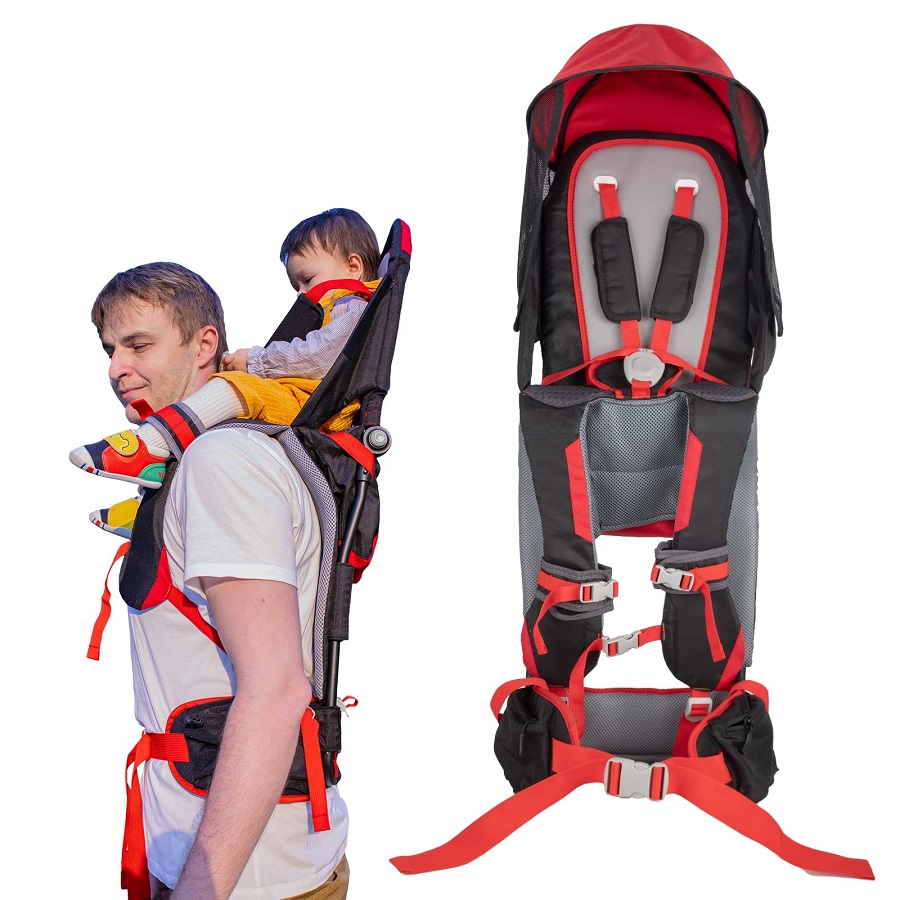Introduction to Hiking with Babies
Selecting the best hiking baby carrier is crucial to make those first steps on the trail both secure and enjoyable. Comfortable, safe carriers enable you and your little one to discover the joys of hiking together.
Parents looking to share the wonders of nature with their babies will find that a well-chosen carrier makes all the difference. The best hiking baby carrier offers a mix of safety, comfort, and convenience, allowing families to create unforgettable moments amidst the beauty of the outdoors.
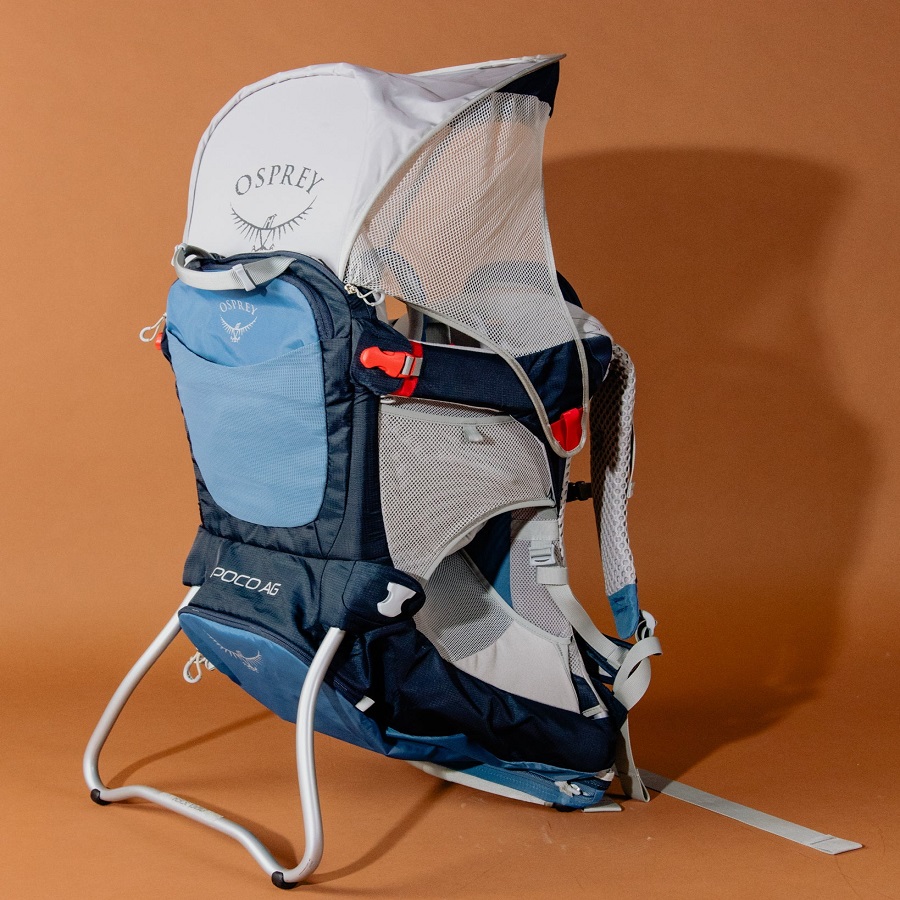
Key Features of Top-Rated Hiking Baby Carriers
When selecting the best hiking baby carrier, specific key features stand out to ensure a blend of safety, comfort, and convenience during your outdoor excursions. Parents should look for carriers that include the following essential elements:
- Adjustable Fit: A carrier that offers adjustable straps and seating can accommodate your growing child and can be tailored to the wearer’s body, enhancing comfort for long treks.
- Durable Material: High-quality materials resist wear and tear, ensuring the carrier withstands the rugged terrain and varying weather conditions commonly encountered on the trail.
- Safety Harness: A secure harness system, typically a five-point harness, is a must to keep your baby safely strapped at all times while hiking.
- Weight Distribution: Good carriers have design features that distribute the baby’s weight evenly across the parent’s hips and shoulders, preventing strain and fatigue.
- Ventilation: To keep both the parent and child cool, especially during warmer hikes, carriers should feature breathable fabrics or built-in ventilation systems.
Hikers must prioritize these key features when choosing a carrier to ensure both their baby’s safety and their own comfort during outdoor adventures.
How to Choose the Right Baby Carrier for Your Hiking Adventure
When planning to hike with your baby, the right carrier is key. Here’s how to choose one:
- Assess Your Needs: Think about your hiking habits. Do you take long treks or short walks? This affects the type and durability of the carrier you’ll need.
- Try Before You Buy: If possible, test carriers. A good fit for you and your baby is essential for comfort on the trail.
- Check for Adjustability: Make sure the carrier can adjust to fit your growing child and different wearers.
- Read Reviews: Learn from other parents. Reviews can provide real-life insights on a carrier’s performance and durability.
- Compare Features: Match carrier features with your needs. Check for safety harnesses, storage, and how well it handles weight distribution.
Choosing the best hiking baby carrier involves careful consideration of these factors to ensure enjoyable and safe hiking experiences for your family.
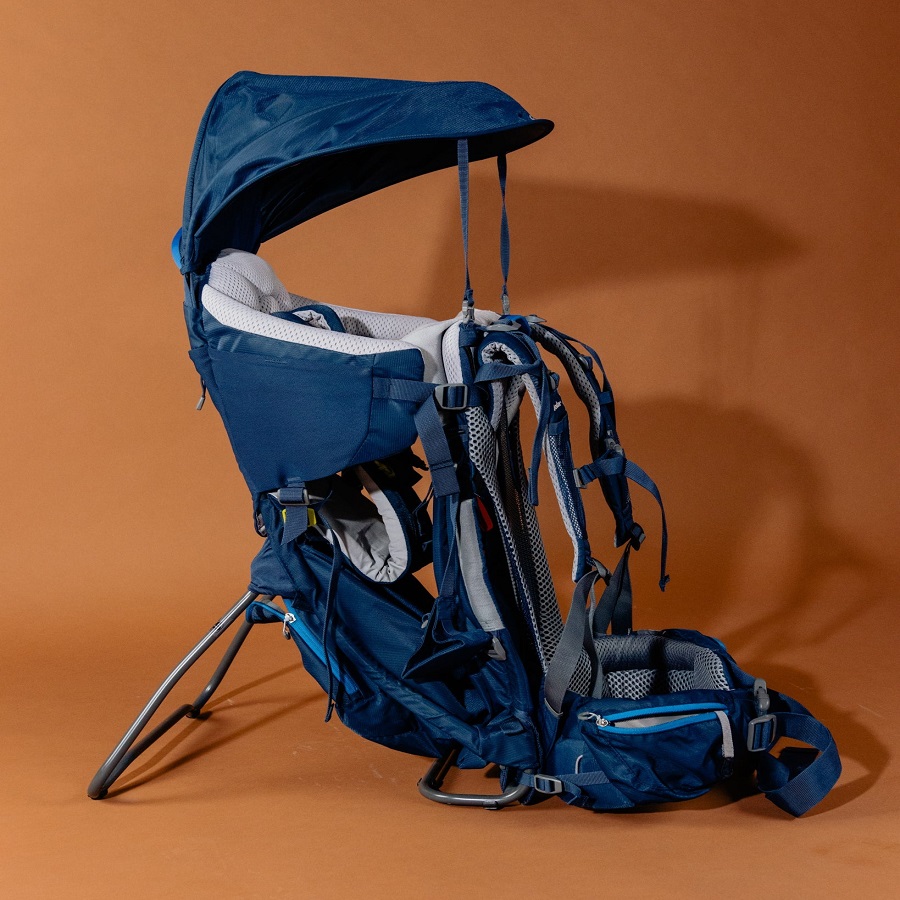
The Importance of Carrier Comfort for Parent and Child
When embarking on outdoor hikes with your baby, carrier comfort is essential for both of you. A snug, supportive baby carrier can make a remarkable difference in your hiking experience. Here’s why it’s vital to prioritize comfort:
- Reduced Fatigue for Parents: Comfortable carriers with good weight distribution minimize the strain on your back and shoulders.
- Happier Hiking Babies: A cozy carrier permits babies to enjoy the journey without discomfort.
- Extended Outing Durability: More comfort means longer, more enjoyable hikes without the need to take frequent breaks.
- Increased Stability: A well-fitting carrier ensures steady balance on uneven trails.
- Better Engagement: When parents are comfortable, they can more easily interact with and tend to their child’s needs.
Selecting a carrier with adequate padding, adjustable straps, and ergonomic support is a move towards countless treasured adventures on the trails with your little one.
Safety Considerations When Hiking with a Baby Carrier
When setting out on a hike with your baby, safety should always be your top priority. Here are essential safety considerations to keep in mind:
- Proper Fit: Ensure the carrier fits both you and your baby snugly. A poorly fitted carrier can cause balance issues and discomfort.
- Check Carrier Before Use: Inspect the baby carrier for any wear or damage before each hike. Look for signs of wear on the straps, buckles, and seams.
- Familiarize with Harness: Practice using the carrier’s harness system. Make sure it’s secure and that you’re comfortable with how to lock and release it.
- Stay on Suitable Trails: Choose trails that match your skill level. Avoid paths that are too steep or have rough terrain.
- Keep Baby Close: Monitor your baby often. Use built-in mirrors if available, and ensure there’s always clear airflow to your child.
By prioritizing safety with these considerations, you and your baby can enjoy secure and pleasant hiking experiences together.
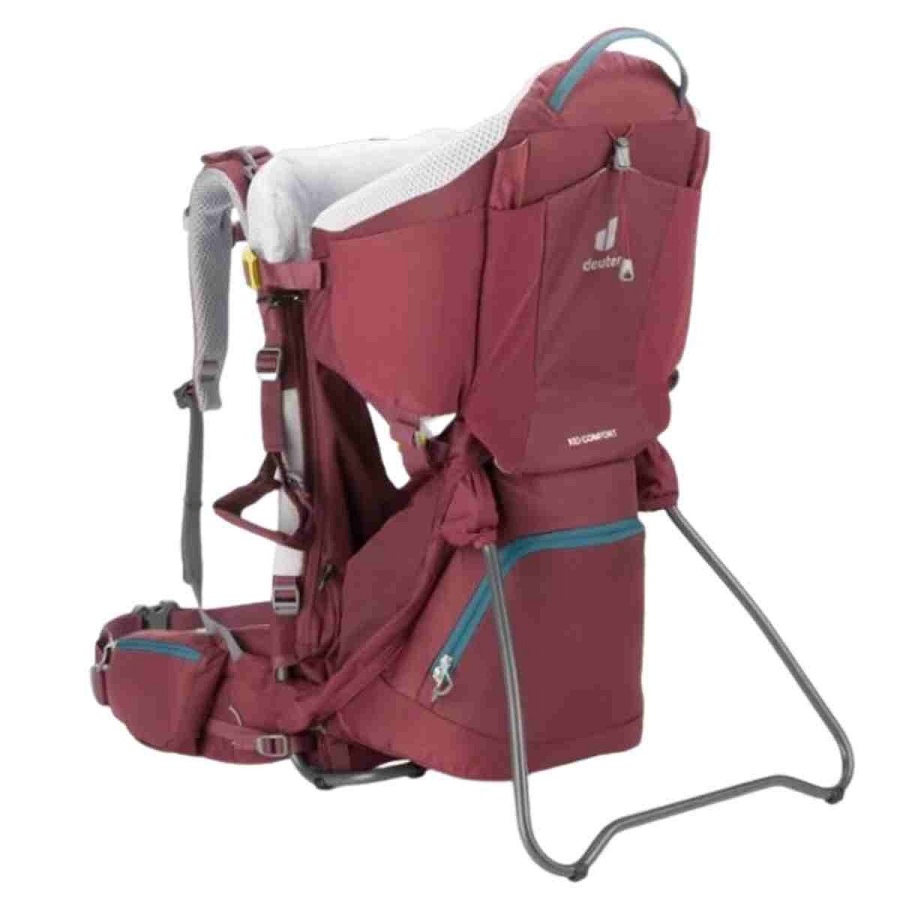
Popular Models: An Overview
When it comes to hiking with babies, you’ll encounter a variety of popular models, each with its unique features designed to enhance the hiking experience for both parent and child. Let’s take a brief look at some of the highly regarded carriers that parents have come to trust.
- Osprey Poco Plus: Known for its sturdy build and comfort, this model offers ample storage, an integrated sunshade, and an adjustable harness system. It’s a top choice for those who prioritize ease of use and long-term durability.
- Deuter Kid Comfort: A favorite for its ergonomic design and ventilation, the Deuter Kid Comfort also boasts a variety of safety features and is known for great weight distribution, making it a solid option for longer treks.
- Kelty Journey PerfectFIT: Standing out for its affordability and light weight, this carrier is ideal for parents who seek a budget-friendly yet reliable option for occasional hikes, with essential features like an adjustable seat and sun protection.
These models are just a glimpse of the wide range of carriers available for outdoor-loving families. Each one offers a blend of safety, comfort, and convenience, but the best choice for your family will depend on your specific hiking needs and preferences.
Maintenance and Care Tips for Hiking Baby Carriers
Proper maintenance and care of your hiking baby carrier can extend its life and ensure safety on your hikes. Here are some tips you should consider:
- Regular Inspections: Before each hike, check the carrier for any signs of damage or wear, especially on the buckles, straps, and seams.
- Follow Washing Instructions: Clean your carrier according to the manufacturer’s instructions. Some may allow machine washing, while others may require hand washing or spot cleaning only.
- Store Properly: When not in use, store your carrier in a dry, cool place away from direct sunlight to prevent fabric from weakening or colors from fading.
- Tighten Straps: Ensure all straps are tight and well-adjusted to avoid any slipping or shifting that could affect your balance and the baby’s position.
- Avoid Overloading: Never exceed the weight limit specified by the manufacturer. Overloading can cause undue stress on the carrier’s structure.
- Dry After Use: If the carrier gets wet while hiking, allow it to fully dry before storing to prevent mold and mildew buildup.
By maintaining your hiking baby carrier and regularly caring for it, you can safely enjoy many adventurous hikes with your little one.
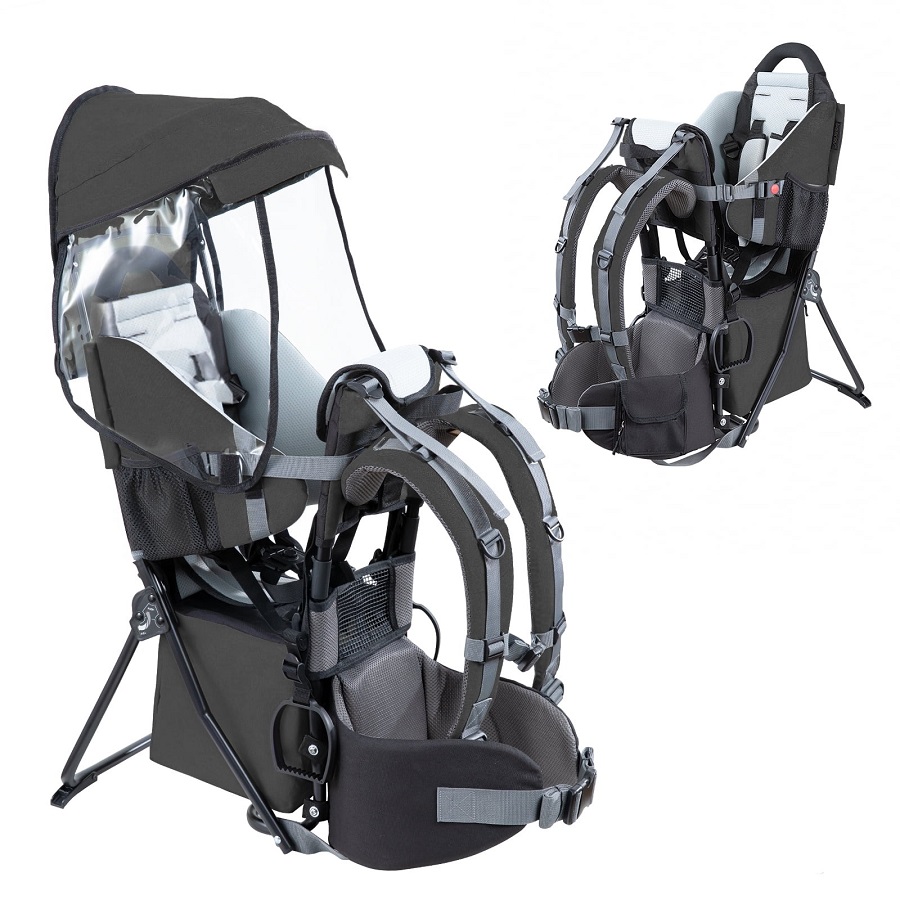
Real Parent Insights:
Hiking parents often share helpful insights from using baby carriers on trails. Here are some experiences they’ve conveyed:
- Comfort is King: Parents frequently mention how important carrier comfort is for them and their babies. A carrier that’s uncomfortable can shorten a hike quickly.
- Safety First: Stories emphasize checking carrier integrity before hikes. Any damage could risk safety.
- Adjust to Grow: Many appreciate adjustable carriers. As babies grow, carriers should adapt. This feature comes highly recommended for economic and practical reasons.
- Easy Access Pockets: Pockets easily accessible to the parent are a big plus. They make grabbing snacks or pacifiers simple without removing the carrier.
- Weight Distribution Matters: Parents often point out the difference proper weight distribution makes. Carriers that balance weight allow for longer, more comfortable hikes.
- Weather-Ready Features: Canopies and rain covers are life-savers, say parents. They protect babies from sun and rain, making any weather hike possible.
By taking note of these real-world experiences, you can select a hiking baby carrier that meets your needs, ensuring happy trails for you and your little adventurer.
